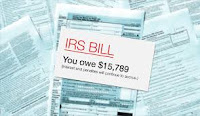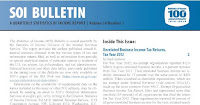
On remand from the Eleventh Circuit, the Tax Court has determined in
Romano-Murphy, 152 TC No. 16, that IRS's assessment of the trust fund recovery penalty was invalid, rejecting the determination of the IRS Office of Appeals.
Based on the Eleventh Circuit's finding that under Code Sec. 6672(b)(3)(B) and the Regs, IRS was required to issue a pre-assessment determination of liability, the Tax Court concluded that this requirement was one of the "requirements of applicable law or administrative procedure," compliance with which must be verified by the Office of Appeals in a Code Sec. 6330 collection due process (CDP) hearing.
IRC Sec. 6672(a) imposes a 100% penalty, commonly referred to as the trust fund recovery penalty or the responsible person penalty, on "responsible persons" if they willfully fail to pay over to IRS the amount of taxes otherwise due. IRS must notify a taxpayer that he will be subject to an assessment (pre-assessment notice) before it can impose a penalty. (Code Sec. 6672(b)(1)) IRS must also wait 60 days from the date of the notice letter before making an assessment. (Code Sec. 6672(b)(2)).
The taxpayer, Ms. Linda Romano-Murphy, was the chief operating officer of NPRN, a business that was behind in paying its 2005 employment taxes. After unsuccessfully seeking full payment from NPRN, IRS sought to recover the remaining amount due from Romano-Murphy under Code Sec. 6672(a).
The IRS sent Romano-Murphy a Letter 1153 (pre-assessment notice) informing her that, pursuant to Code Sec. 6672(a), she, as the chief operating officer of NPRN, was personally responsible for the company's unpaid trust fund taxes. It also informed her of her right to protest the proposed assessment.
 Romano filed a timely protest with IRS. Due to some unexplained error, IRS did not forward Romano-Murphy's formal written protest to its Appeals Office, which exclusively handles taxpayers' pre-assessment protests under Code Sec. 6672(b). The Appeals Office, therefore, never considered the protest, and Romano-Murphy was not given a pre-assessment conference or a final administrative determination as to her protest.
Romano filed a timely protest with IRS. Due to some unexplained error, IRS did not forward Romano-Murphy's formal written protest to its Appeals Office, which exclusively handles taxpayers' pre-assessment protests under Code Sec. 6672(b). The Appeals Office, therefore, never considered the protest, and Romano-Murphy was not given a pre-assessment conference or a final administrative determination as to her protest.
On October 15, 2007, having failed to address or resolve her protest, IRS made an assessment against Romano-Murphy.
In August 2008, IRS served Romano-Murphy with notice of its intent to levy to collect the penalty for NPRN's outstanding trust fund taxes. In September 2008, Romano-Murphy filed a timely request for a CDP hearing to contest her liability under Code Sec. 6672(a).
 Romano-Murphy received a CDP hearing with the IRS Appeals Office in February 2009. At the hearing, she disputed her liability under Code Sec. 6672(a) for the assessed penalty. The Appeals Office noted during the hearing that, although Romano-Murphy had filed a timely pre-assessment protest, IRS had never given her the opportunity to dispute her liability prior to making an assessment. Because the proposed assessment had never been reviewed, the Appeals Office conducted a post-assessment review of Romano-Murphy's challenges to liability and to the amount of the penalty.
Romano-Murphy received a CDP hearing with the IRS Appeals Office in February 2009. At the hearing, she disputed her liability under Code Sec. 6672(a) for the assessed penalty. The Appeals Office noted during the hearing that, although Romano-Murphy had filed a timely pre-assessment protest, IRS had never given her the opportunity to dispute her liability prior to making an assessment. Because the proposed assessment had never been reviewed, the Appeals Office conducted a post-assessment review of Romano-Murphy's challenges to liability and to the amount of the penalty.
IRS Appeals Concluded That She Was Liable For The Outstanding Trust Fund Taxes.
Romano-Murphy Sought Review Of The
Appeals Office's Determination In The Tax Court.
The Tax Court held that Romano-Murphy was liable under Code Sec. 6672(a) for the penalty. (Romano-Murphy, TC Memo 2012-330). Romano-Murphy then filed a motion to vacate the Tax court's order.
She argued that collection of a tax liability, pursuant to Code Sec. 6502, can only occur after an assessment has been made, and the assessment in her case was invalid because IRS had failed to give her a pre-assessment hearing and determination when she filed her timely protest, which was her right by law.
This procedural error, Romano-Murphy argued, denied her due process and prejudiced her in a number of ways. The Tax Court denied Romano-Murphy's motion to vacate.
The Eleventh Circuit, vacating and remanding the Tax Court decision, held that Romano-Murphy was entitled to a pre-assessment determination of her Code Sec. 6672 liability. IRS therefore erred in not providing her such a determination before making the assessment and issuing its notice of intent to levy.
The Court disagreed with the Tax Court, which it said had, in effect, concluded that taxpayers have no statutory right to a pre-assessment hearing or to a final administrative determination of a pre-assessment protest. Romano-Murphy v. Comm., (CA 11 3/7/2016) 117 AFTR 2d 2016-934).
The Court cited several reasons for its conclusion. Although Code Sec. 6672 does not contain a subsection concerning a pre-assessment hearing or determination of liability, Code Sec. 6672(b)(3)(B) does presuppose that there will be a pre-assessment determination at some point if a taxpayer files a timely protest.
Further, Reg § 301.7430-3(d) provides that, when a pre-assessment protest is filed, the Appeals Office must make a determination of Code Sec. 6672 tax liability and notify the taxpayer of that determination in writing by following specific steps.
The Eleventh Circuit remanded the case to the Tax Court to determine what action, if any, should be taken to remedy the IRS's error in assessing the penalty against the taxpayer before making a final administrative determination.
The Tax Court, on remand, concluded that the no-assessment-before-determination requirement identified by the Eleventh Circuit was one of the "requirements of applicable law or administrative procedure," compliance with which must be verified under Code Sec. 6330(c)(1) by the Office of Appeals in an Code Sec. 6330 collection-review hearing.
The Tax Court then held that the assessment of the trust fund recovery penalty was invalid and the Court did not sustain the determination of the IRS Office of Appeals.
Have an IRS Tax Problem?
 Contact the Tax Lawyers at
Contact the Tax Lawyers at
Marini & Associates, P.A.
for a FREE Tax HELP Contact Us at:
orToll Free at 888-8TaxAid (888) 882-9243
















